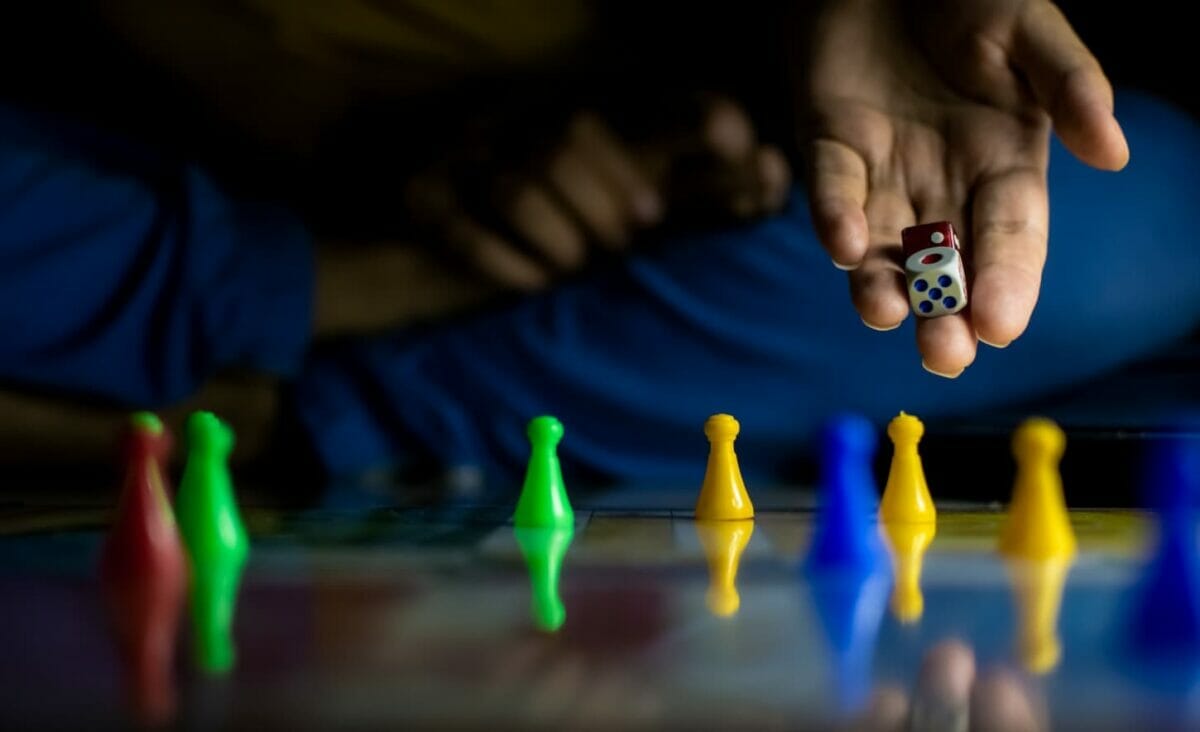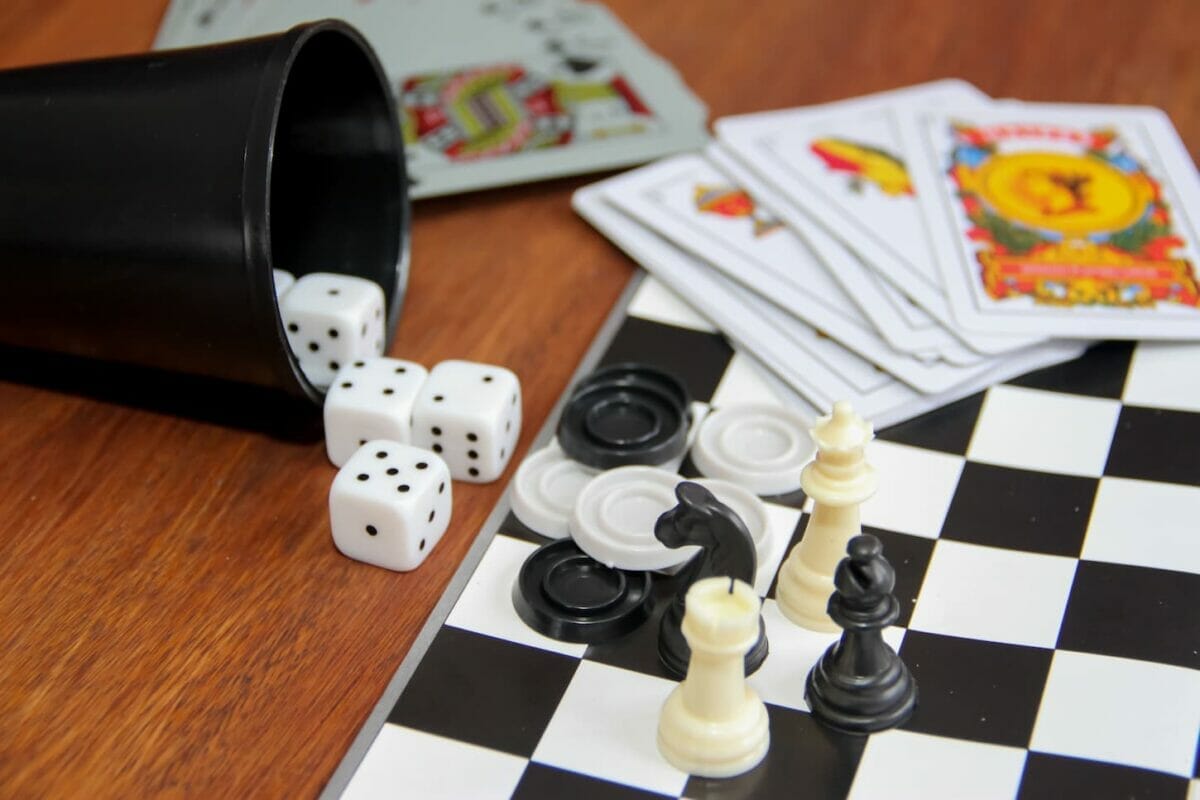Board games are popular for fun family nights, get-togethers with friends, and more. While it might not be apparent, playing board games has quite a few disadvantages. So, what are the potential negative impacts of this classic pastime?
Playing board games can cause harm to relationships, physical and emotional health, the environment, and many other areas. It’s good to be aware of these disadvantages to make thoughtful decisions about engaging with board games.
Keep reading below to discover the disadvantages of playing board games and some solutions to help.

What Are the Disadvantages of Board Games?
In spite of their reputation as a fun family pastime, board games can be harmful. They can cause relational issues, cost a lot of money, harm the environment, lead to health problems, and take up large amounts of time.
What are the social and relational disadvantages of board games?
Board games are intended to be a fun way for friends and families to bond and spend time together. However, sometimes they can have the opposite effect and create conflict or other relationship difficulties.
It’s common for families to try to play board games together, but differences in age, personality, and abilities can make this a challenge and leave some members feeling left out.
For children with learning differences like ADHD and dyslexia, many board games can feel frustrating and boring. Some games, like Pictionary and Trivial Pursuit, require special skills and knowledge that not everyone has, making them fun for some people and miserable for others.
Naturally competitive individuals may be thrilled by the quest to dominate the island of Catan, while for gentler players, it could prove stressful rather than fun. Families may struggle to choose games that challenge teens and adults while being enjoyable for younger kids.
Whether due to vaguely worded rules, cutthroat strategies, or luck favoring some players over others, games can create tension and conflict between players.
People sometimes take board games very seriously and forget the stakes are not real and the game is supposed to be fun. There’s a reason it’s become a cliché for families to ban Monopoly.
What are the other disadvantages of board games?
- Board games can be expensive, especially if they have expansions and variants.
- Complicated strategy games can require hours to set up and days to play a complete game.
- Many board games use plastic packaging and components that harm the environment.
- Excessive board game playing could lead to various health problems.
How Do Board Games Affect Your Health?
Some health benefits can be associated with board games, especially regarding brain function. However, board games can also negatively affect health, especially because they involve prolonged sitting and raise stress levels.
Playing fun games as a family can potentially help improve health. The time spent together on an enjoyable activity can reduce stress, encourage positive emotions, lower blood pressure, and help strengthen relationships.
In addition, studies suggest playing board games can help increase cognitive skills such as memory and spatial awareness. They may even help to lower the risk of Alzheimer’s and other forms of age-related memory loss (source).
Are there any health risks associated with playing board games?
For all their benefits, board games can also harm our health. Sitting and stress are two major causes of health issues today, and board games can exacerbate these problems.
Prolonged sitting is all too common in modern society, where an increasing number of jobs are done on the computer. Unfortunately, a sedentary lifestyle increases the risk of poor circulation, back problems, weight gain, heart disease, and cancer (source).
Because of these health risks, sitting and playing board games during leisure time may not be the healthiest choice for people who spend all day sitting at work or school.
Another major culprit behind health problems is elevated stress levels. Consistently high-stress levels expose the body to excessive levels of the hormone cortisol.
It also leads to headaches, digestive issues, muscular tension, weight gain, sleep-related issues, difficulty concentrating, mental health problems, and potentially life-threatening cardiovascular issues (source).
Even though board games are intended to be a fun way to spend time with others, sometimes they can create stress rather than relieve it. The competitive aspect of most board games can make them stressful, especially if it leads to conflict between players.
Between their sedentary nature and their potential to cause stress, health concerns can be a valid reason to avoid board games as a leisure activity.

How Do Board Games Affect the Environment?
A major concern about board games is their negative environmental effects. Between the large amounts of packaging they use, and the complicated process of getting them from the producer to the consumer, board games are far from eco-friendly.
Most board games come with their components packaged in plastic that is immediately discarded. In addition, many of them are produced in countries such as China and then shipped to the U.S. or Europe, resulting in a major carbon footprint.
As such, those concerned about their hobbies’ impact on the earth may want to steer clear of board games and look for other, more environmentally friendly leisure activities.
Are there ways to reduce the environmental impact of playing board games?
Die-hard board game enthusiasts who want to be environmentally responsible can find ways to minimize their environmental harm. Two simple strategies are buying fewer games and looking for secondhand games.
To best care for the environment, maintain a small collection of high-quality games, and don’t succumb to the temptation to buy every new expansion as soon as it comes out. Purchasing fewer games helps reduce the carbon footprint and the amount of packaging used.
In addition, buying secondhand games helps reduce the environmental impact of shipping and production. It also keeps old games from ending up in landfills or oceans. Secondary sources might also have cool discontinued games unavailable elsewhere.
Why Should We Limit Our Children’s Access to Certain Types of Board Games?
Children’s access to board games may need to be limited if the content isn’t age appropriate. Some board games deal with mature subject matter and are best suited for adults. Many board games, even family classics, reward behaviors parents may not want to encourage in their children.
Generally speaking, board games will have an age rating on the box, which is a good starting place for making calls about child-friendliness. A game of 18+ isn’t likely the best choice for family game night. Instead, get a game rated appropriate for your family’s ages and skill levels.
Every family is different, and every child is different. Reading reviews and the rules of games can also help gauge what problems might arise.
Some parents might not want their children to play games where lying and selfish behavior are required to win, while others might think their children are mature enough to understand the difference between a game and real life.
What Are Some Alternatives to Playing Board Games?
Families may want to move away from board games but are unsure what to do. Movies and TV are obvious alternatives, but there are also many other fun ways for a family to spend time together. Here are a few ideas for activities to take the place of board games.
- Visit local parks, libraries, or museums.
- Take a walk or bike ride through the neighborhood.
- Read a book aloud or listen to an audiobook together.
- Volunteer with a local nonprofit.
- Work on a cooking, baking, or art project together.
- Have a family karaoke night or dance party.
- Play active games like hide-and-seek or capture the flag.
Are Board Games Mostly Positive or Negative?
Board games can provide a fun, intellectually stimulating way for families to spend time together. However, they can also negatively impact health, relationships, and the environment. These pros and cons can differ depending on the family and game.
Like many activities, board games can be either positive or negative, largely a matter of perspective. Each family will have to decide whether to play board games, and if so, which ones, when, and how.
Are there board games designed to avoid these disadvantages?
Not all board games fall victim to the same pitfalls. Some game designers have specifically tried to avoid the problems listed above. Here are games that remedy some of the disadvantages mentioned above.
This site uses paid referral links from carefully selected advertising partners. I only promote products I like, use, and recommend. As an Amazon Associate, I can earn from qualifying purchases. Please refer to my disclaimer in the terms and conditions for additional details.
- Cranium (along with the other games in its family) is designed to give every player, regardless of skills, interests, and age, a chance to excel and have fun.
- Groundhog Day and Pandemic are two examples of cooperative games in which players work together instead of competing to win.
- Earth-opoly and Endango are games made from eco-friendly materials to increase players’ environmental awareness.

What Are the Advantages of Board Games?
Board games have many good aspects. They can encourage family bonding, create fun memories, and help children learn valuable cognitive and social skills.
Gathering around a board game allows a family to interact, laugh together, get to know one another better, and form deeper relationships. It provides a level of interaction not offered by watching a movie or television series.
In addition, board games can provide children with opportunities to develop their skills in problem-solving, critical thinking, listening and memory, and long-term planning. They can also provide a low-stakes environment to practice turn-taking, communication, and conflict-resolution skills.
Since the learning opportunity is fun, children may grasp these concepts more fully and readily through games than through other teaching methods.
Key Takeaways and Next Steps
Although board games are often a go-to for families looking for a way to spend downtime, they may not be the best choice due to the physical, relational, and environmental consequences. Fortunately, many other fun activities can serve as alternatives.
That being said, they are classic and fun. Even if all you do is play a card game together during downtime, it can be a great way to spend time together as a family. So do what’s best for your family – while weighing all the pros, cons, and other risks and benefits. Then maybe go play some Different Types of Board Games:10 Board Games Types to Know!
Have fun, friends!
Resources
Learning from your own experience is important, but learning from others is also smart. These are the sources used in this article and our research to be more informed as gamers.
- Health Fitness Revolution. (2023, January 20). Top 10 health benefits of board games. Health Fitness Revolution. https://www.healthfitnessrevolution.com/top-10-health-benefits-board-games/
- Katella, K. (2019, August 28). Why is sitting so bad for us? Yale Medicine. https://www.yalemedicine.org/news/sitting-health-risks.
- Mayo Clinic Staff. (2021, July 8). Chronic stress puts your health at risk. Mayo Clinic. https://www.mayoclinic.org/healthy-lifestyle/stress-management/in-depth/stress/art-20046037.
- Stanton, K. (2020, August 11). 32 eco-friendly board games for off-screen quality time. Uniguide. https://www.uniguide.com/eco-friendly-board-games